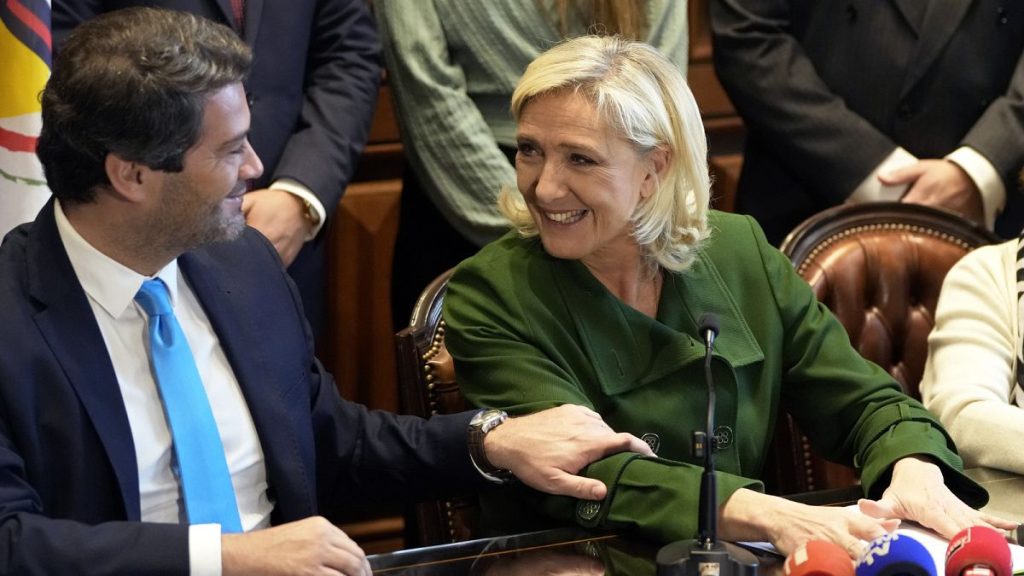The leaders of Europe’s far-right parties met in Brussels to discuss uniting the fractured right-wing in the European Parliament following gains in the recent elections. Marine Le Pen of France’s National Rally (RN) party and Matteo Salvini of Italy’s League party are among the key figures leading the talks. Other leaders attending included Geert Wilders of the PVV party in the Netherlands, Tom Van Grieken of Belgium’s Vlaams Belang, and André Ventura of Portugal’s Enough party. The goal of the meeting was to form a larger right-wing bloc to fight against corruption, illegal immigration, and control borders.
Currently, far-right parties in the European Parliament are divided between the Identity and Democracy (ID) group and the European Conservatives and Reformists (ECR) group, which includes parties like Giorgia Meloni’s Brothers of Italy and Spain’s Vox. Talks of merging these groups have been ongoing, with the potential of becoming the third or second largest political force in the European Parliament. Marine Le Pen has been seeking the backing of Italian premier Giorgia Meloni to unite their respective groups into a far-right supergroup, with the hope of strengthening their influence on the EU stage.
However, uniting the radical right forces is not without challenges, particularly regarding deep divides on issues such as Ukraine and pro-Russia sentiment. Some parties within the ID group, such as the Austrian Party for Freedom (FPÖ), are considered pro-Russian and opposed to EU support for Ukraine. Parties like Alternative for Germany (AfD) have faced controversies over alleged Russian influence operations. Despite these challenges, leaders within the ID group have been working to soften their stances on key issues to create a more unified front.
As the political landscape in Europe continues to evolve, far-right parties are making strategic moves to increase their influence. Marine Le Pen’s RN party is eyeing control of the National Assembly in France, Viktor Orbán’s Fidesz party is looking for a political home in the European Parliament, and various leaders are seeking to form a stronger right-wing bloc. The shift towards uniting the radical right is seen as a risky move by some, particularly if it results in undermining centrist and left-leaning forces and impacting stability in Ukraine and Europe’s geopolitical landscape. The outcome of these discussions could have significant implications for the future of the far-right in Europe and the broader political landscape.












